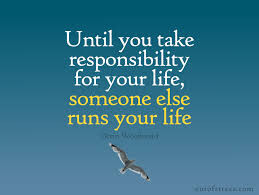《自律養生實踐家之旅373》 後果誰承擔,就是誰的事

在父母辭世前的十年間,我與弟弟幾乎每個月都要抽出時間陪診。身為醫師的父親,在醫療體系裡並沒有任何特權,一樣掛號、一樣排隊、一樣領藥。
我們兄弟倆分工,一人開車,一人攙扶。那段時間,我常在例行的陪診途中思考:為什麼這樣的「求診公式」成了常態?為什麼一個看似違背常理的循環,卻能被社會普遍接受?
一個人生病,往往牽動整個家庭的作息與命運。照顧者自動上線,沒有人能推辭,也沒有人追究責任,因為「那是家人該做的事」。
理論上,生病的後果應由患者自己承擔,但現實並非如此。
父親臨終前三個月,我的太太辭去工作,成為他全職看護,她替我承擔了我本該承擔的角色。沒有這樣的家人支撐,許多人只能請看護代勞;若無財力,只能由子女放下工作接手。
這樣的劇本你看過多少回?醫院是主要舞台,身體虛弱的人看著親友進進出出,無奈又熟悉。
這樣的故事,只有兩種結局:出院,或出殯。
而我開始思考:能不能有第三種?守住尊嚴很難嗎?遠離病痛不可能嗎?非得進醫院不可嗎?
在接觸斷食之前,我腦中的情節幾乎都圍繞著「讓醫院從生命裡消失」的可能。這也許是命運的安排,一個從小與醫院密不可分的人,卻立志打破那條既定的輸送帶。
從出生、成長、大學到服兵役,我的生命都與醫院有關,但內心卻潛藏著一股願力,要尋回健康的主權。
老天垂憐,我真的走進了「身體之道」,看見遠離醫院的希望。
生病,說到底,是沒能把自己照顧好的結果。自己沒做好的事,理應自己收尾;自己犯的錯,理應自己善後。
然而現實中,患者承擔的只是表面,更多人在背後默默付出。
台灣現今有一半人口超過45歲,這意味著「老年社會」已正式到來。年輕人開始背負上一代的照護責任,更殘酷的是:即使想承擔,也常常力不從心。
這話題最終會連到「養老市場」與「長照需求」,但我想討論的不是產業,而是究竟誰該承擔?
若能從「生、老、病、死」中移除「病」與「死」的一部分負擔,人生是否還有另一種活法?
人都會變老,但每個人都一定會生病嗎?
在斷食的實踐中,我親身體驗到逆轉老化的可能,也看見拒絕病痛的力量。
這是上蒼的恩典,而我深知自己沒有壟斷這份領悟的權利。教育與引導他人走上這條「身體之道」,成了我的使命。
然而,斷食看似簡單,卻是最直接的「承擔測驗」。不吃很容易,但真正的難題是:能否承擔那份單純所引發的複雜?
人只要聚在一起,就容易混淆「我們的事」與「我的事」,最後變成「他人的事」也要自己扛。
每個人頭上都有一片天,意思是自己的人生自己負責。但弔詭的是,光是一餐不吃,就讓許多人無法承擔。
而誤把別人的事當成自己的事,卻是人間最常見的荒謬。
最終我明白,所有問題的根源,都是對「承擔」的誤解。人很常把自己的事丟給別人,也把別人的事攬回自己身上。
有人替你承擔健康的責任,你就不再為身體負責;有人說能幫你治癒,你便放棄了治癒的主動權。
健康要承擔,生病也要承擔。若你不願為健康承擔,終將為疾病承擔。
這不是多選題,沒有「以上皆非」,只有「你願意承擔哪一個?」
當你把「自己的事」想清楚,當你看見生命的結局,也就知道:該做決定的時刻是現在,不是以後。
被動養生的思維,在醫藥商法的催化下被無限放大,導致「承擔」變成謎團,自己的事變成全世界的事。
這就是蝴蝶效應:一個人的貪念,擾亂了世界的金流;一個人的傲慢,撼動了世界的情緒。
(直到你為你的生命負起全責之前,總會有人接管你的人生。)
Who Bears the Consequence, Owns the Story
During the last ten years of my parents’ lives, my younger brother and I took turns accompanying them to medical appointments almost every month.
Even though my father was a physician, he had no privileges within the medical system — he still had to register, queue, and collect prescriptions like everyone else.
We divided the work: one of us drove, the other supported them physically. During those routine hospital visits, I often wondered — why has this “consultation formula” become the norm? Why has a pattern so obviously absurd been so universally accepted?
When one person falls ill, an entire family’s rhythm and destiny shift. Caregivers step in automatically; no one can refuse, and no one demands accountability — because “that’s what family does.”
In theory, the consequence of illness should be borne by the patient. In reality, it never is.
Three months before my father’s passing, my wife resigned from her job to become his full-time caregiver — she took on a role that should have been mine. Without such family support, many would have to hire professional caregivers; those without the means would have to quit their jobs themselves.
You’ve surely seen this script before: the hospital as the main stage, the weakened patient watching family members come and go — helplessly, yet resignedly familiar.
There are only two endings to this story: discharge, or funeral.
And I began to wonder — could there be a third way? Is it truly so hard to preserve dignity? Is freedom from pain impossible? Must the hospital always be the final destination?
Before discovering fasting, most of my thoughts revolved around one idea — the possibility of “making hospitals disappear from life.”
Perhaps it was destiny: a man who grew up inseparably tied to hospitals would one day devote himself to dismantling that conveyor belt.
From birth, through school and military service, my life was woven into the medical world — yet deep within, a quiet vow was forming: to reclaim the sovereignty of health.
Heaven had mercy — I eventually entered the “Way of the Body,” and there I saw the hope of living beyond hospitals.
Illness, at its core, is the result of failing to care for oneself.
What we fail to do for ourselves, we must finish ourselves; what we ruin, we must restore.
But in reality, the patient shoulders only part of the burden — most of it is silently carried by others.
Today in Taiwan, half of the population is over 45 years old — a clear sign of an aging society.
The younger generation now bears the weight of caregiving for the previous one — and the cruelest truth is that even those willing to take responsibility often cannot.
This topic inevitably leads to the “eldercare industry” and “long-term care needs,” but that’s not what I wish to discuss.
What I want to ask is simpler — who should truly bear the consequence?
If we could remove just part of the “illness” and “death” from the cycle of “birth, aging, sickness, and death,” might life itself take on a new form?
Everyone grows old — but must everyone fall ill?
Through the practice of fasting, I’ve experienced the possibility of reversing aging and witnessed the power of rejecting disease.
This is a grace from above, and I know I have no right to monopolize such revelation.
Thus, guiding others onto this “Way of the Body” has become my mission.
Yet fasting, though it seems simple, is the most direct test of responsibility.
Not eating is easy; the real challenge is whether one can bear the complexity that emerges from such simplicity.
When people gather, lines blur easily — between our business and my business — until even someone else’s business becomes yours to bear.
Each person has a sky above their head — meaning, each life must take responsibility for itself.
And yet, ironically, skipping just one meal proves unbearable for many, while taking on others’ burdens has become our daily absurdity.
Eventually, I understood: every problem traces back to a misunderstanding of responsibility.
People often hand their own matters to others — or take others’ burdens upon themselves.
When someone else bears responsibility for your health, you stop being accountable to your own body.
When someone promises to heal you, you surrender the authority to heal yourself.
Health must be borne. Illness must be borne.
If you refuse to take responsibility for your health, you will eventually take responsibility for your disease.
This is not a multiple-choice question. There is no “none of the above.”
There is only this: Which one are you willing to bear?
When you truly understand what belongs to you, when you see the end of life clearly, you will know — the time to decide is now, not later.
Passive wellness — inflated by medical marketing and pharmaceutical commerce — has turned “responsibility” into a riddle, and what is yours into everyone’s business.
This is the butterfly effect: one person’s greed disrupts the world’s economy; one person’s arrogance disturbs the world’s emotions.


